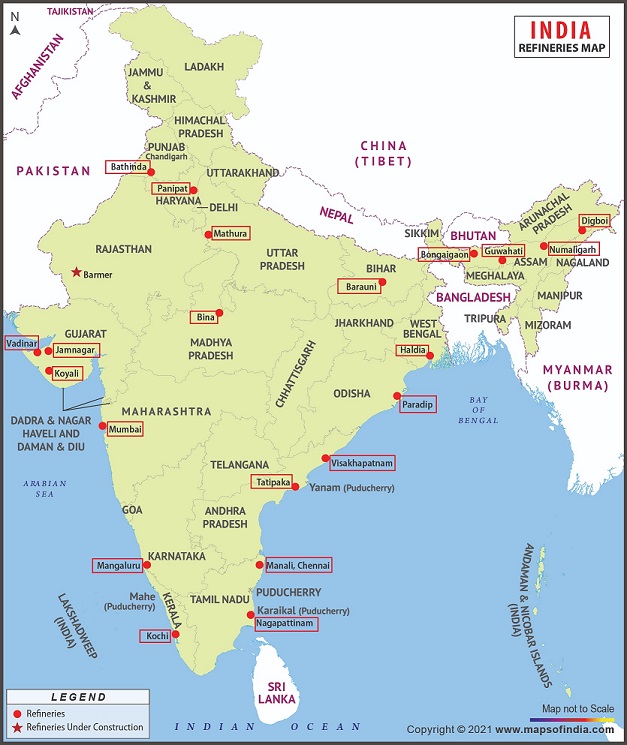7667766266
enquiry@shankarias.in
India can become a global refining hub by turning its disadvantage of inadequate oil and gas production into an advantage.
Oil and Natural Gas Company (ONGC), a Maharatna company, is the biggest crude oil and natural gas name in India, contributing around 75% to Indian domestic production.

|
Status of India’s refinery sector |
|
The production of Bharat Stage VI (BS-VI) fuels to reduce vehicular emissions, it is based on Europe emission norms
Indian government has imposed a windfall tax on fuel exports to prevent domestic refiners from selling their products abroad at higher prices, instead of meeting the local demand.
References